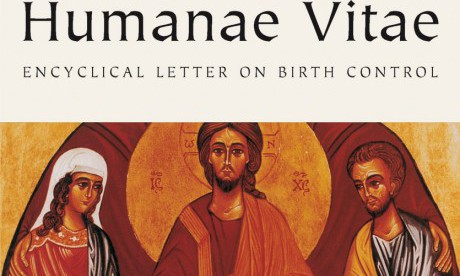It all depends on how you interpret Humanae Vitae.
That’s essential to understanding what Pope Francis “really meant” in his recent string of remarks on having children.
In fact, it’s a line that comes from the pope himself.
He used it in an interview in March with Italy’s biggest-selling daily newspaper, Corriere della Sera.
The paper’s editor asked the pope if the church should take another look at the teaching found in Paul VI’s 1968 encyclical.
“Cardinal Martini, your confrere, thought it was probably the time to do so,” the editor said provocatively.
Here’s how the pope replied:
“It all depends on how Humanae Vitae is interpreted.”
Now that’s interesting!
“Paul VI himself, in the end, urged priest-confessors to be very merciful, to be attentive to concrete situations,” he said, then called his predecessor “prophetic” and praised him for having “the courage to stand against the majority, to defend the moral discipline … and to oppose present and future neo-Malthusianism.”
Francis completed his answer to the question by saying it was not a question of whether to change the encyclical’s teaching, but to “make sure pastoral care takes into account situations and what persons are capable of doing.”
The interview offers an interpretive key to understanding the Jesuit pope when he speaks specifically about the topic of birth control. (Until the papal visit to the Philippines, he’s done so only seldomly.)
There’s another interpretative key.
It’s a principle he put forth in his apostolic exhortation, Evangelii Gaudium, and has repeated on numerous occasions: “Realties are greater than ideas.”
These two instruments are critical to understanding how Pope Francis interprets Humanae Vitae.
First of all, the comments he made in the Philippines, on the plane trip back to Rome and, finally, those at his Wednesday general audience following the trip all suggest one thing: the pope is a realist.
Sources
- Robert Mickens in National Catholic Reporter
- Image: CTS Books
News category: Features.




